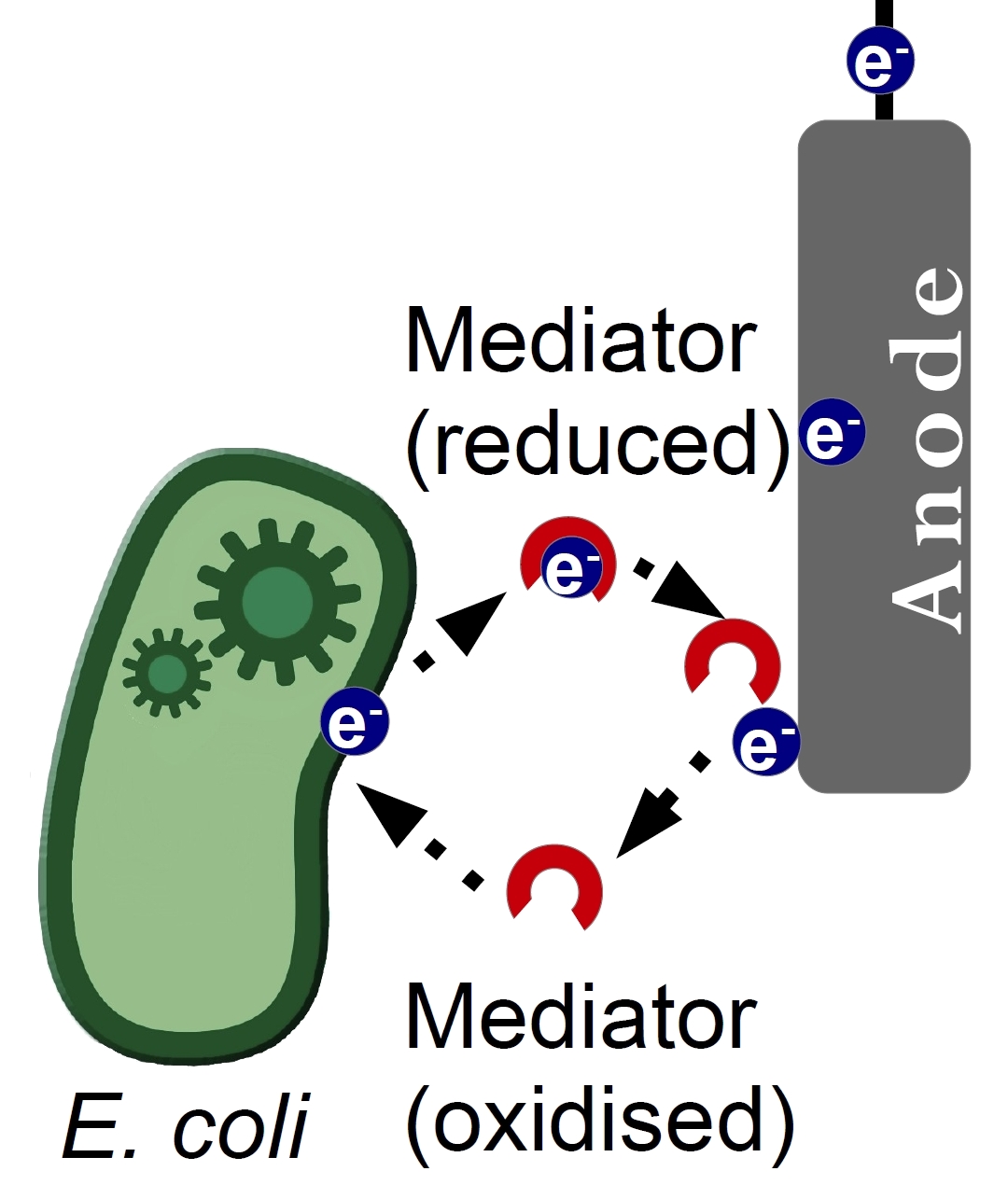Team:Bielefeld-Germany/Project/Mediators
From 2013.igem.org
(Difference between revisions)
| Line 55: | Line 55: | ||
==Overview== | ==Overview== | ||
| - | + | ||
<p align="justify"> | <p align="justify"> | ||
Of great interest is the production of endogenous mediators. The overexpression of glyceroldehydrogenase in E. coli is a promising approach. Because many derivates of glyceroldehydrogenase are small, water-soluble redoxmolecules, they have the properties of a mediator. Futhermore, it will be tested, if there is a possibility of expressing the mediator phenazin. Phenazin is an endogenous mediator of Pseudomonas species. | Of great interest is the production of endogenous mediators. The overexpression of glyceroldehydrogenase in E. coli is a promising approach. Because many derivates of glyceroldehydrogenase are small, water-soluble redoxmolecules, they have the properties of a mediator. Futhermore, it will be tested, if there is a possibility of expressing the mediator phenazin. Phenazin is an endogenous mediator of Pseudomonas species. | ||
</p> | </p> | ||
| - | |||
| - | + | ||
[[Image:Bielefeld Germany Mediator principal.jpg|left|thumb|250px|'''Figure 1:''' Principle of electron transfer from bacteria to anode via mediators as electron shuttle.]] | [[Image:Bielefeld Germany Mediator principal.jpg|left|thumb|250px|'''Figure 1:''' Principle of electron transfer from bacteria to anode via mediators as electron shuttle.]] | ||
| - | + | ||
<br><br> | <br><br> | ||
Revision as of 19:09, 29 September 2013
Mediators
Overview
Of great interest is the production of endogenous mediators. The overexpression of glyceroldehydrogenase in E. coli is a promising approach. Because many derivates of glyceroldehydrogenase are small, water-soluble redoxmolecules, they have the properties of a mediator. Futhermore, it will be tested, if there is a possibility of expressing the mediator phenazin. Phenazin is an endogenous mediator of Pseudomonas species.
Theory
Genetic Approach
Results
References
- xxx
 "
"

